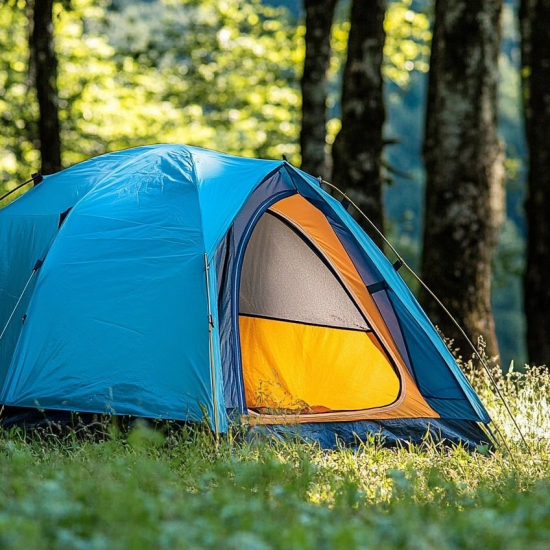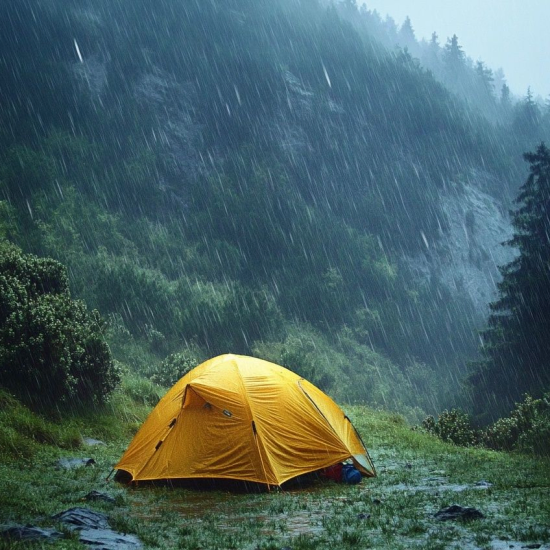Table Of Content
- Inspecting Your Tent Regularly
- Why Is Regular Inspection Important?
- How to Inspect Your Tent
- Cleaning and Drying Your Tent Properly
- Why is Cleaning and Drying Your Tent Important?
- How to Clean Your Tent
- Tips for Drying Your Tent
- Storage Tips to Extend Your Tent’s Lifespan
- Keep It Dry
- Avoid Direct Sunlight
- Air It Out
- Avoid Stuffing
- Use a Ground Cloth
- Avoiding Mildew and Mold Growth
- Properly Dry Your Tent After Each Use
- Store Your Tent in a Cool, Dry Place
- Use a Gentle Cleaner when Cleaning Your Tent
- Avoid Folding Your Tent When It’s Damp
- Inspect Your Tent Regularly for Signs of Mold or Mildew
- Repairing Tears and Holes in Your Tent
- Assess the Damage
- Gather Your Supplies
- Repairing Small Holes and Tears
- Dealing with Larger Tears
- Seal the Seams
- Applying Waterproofing to Maintain Protection
- Why Waterproofing Is Crucial
- When Should You Reapply Waterproofing?
- How to Apply Waterproofing
- Frequently Asked Questions (FAQs)
- Why is tent maintenance important?
- How often should I clean my tent?
- What is the best way to clean a tent?
- How can I repair small tears in my tent?
- Are there ways to extend the longevity of my tent?
- Can I machine wash my tent?
Welcome, avid campers and outdoor enthusiasts! As a seasoned adventurer, you understand the importance of caring for your gear, especially your trusty tent. Proper maintenance and care not only extend the lifespan of your tent but also enhance its performance in various weather conditions. In this guide, we will delve into essential tent care tips to ensure the longevity and durability of your shelter in the great outdoors.
Whether you’re a weekend warrior or a seasoned backpacker, your tent is your home away from home. Regular tent maintenance is critical to preserving functionality and ensuring a comfortable camping experience. From cleaning to repair tips, we will cover all aspects of tent care to help you maximize your investment.
Through our detailed breakdown of tent maintenance practices, you will learn how to effectively clean your tent after each outing, address common repair issues, and implement strategies to prolong its lifespan. Incorporating these tent care tips into your camping routine allows you to enjoy many more adventures under the stars with a reliable and sturdy shelter.

Inspecting Your Tent Regularly
When was the last time you gave your tent a thorough once-over? Checking your tent regularly is crucial to ensure it remains in top condition. Your tent also needs some TLC, like taking your car for a service.
Why Is Regular Inspection Important?
Think of your tent as your trusty shield against the elements. It keeps you safe and dry during outdoor adventures. But what if your shield has some cracks?
- Small tears can quickly turn into big problems.
- Regular checks prevent surprises on your camping trip.
How to Inspect Your Tent
Here’s a quick guide on how to inspect your tent properly:
- Set up your tent in a well-lit area.
- Check for tears, holes, or damaged seams.
- Inspect the zippers for any snags or issues.
- Ensure all poles and stakes are intact.
By investing a few minutes in inspecting your tent, you are investing in its longevity and safety. A small tear today could lead to a big regret tomorrow. Don’t let a minor fault ruin your camping experience. Remember, prevention is always better than cure!

Cleaning and Drying Your Tent Properly
As a devoted camper, you know your tent is your sacred sanctuary in the great outdoors. Proper maintenance is critical to ensuring its longevity and your comfort during your adventures. Now, let’s delve into some essential tips for correctly cleaning and drying your tent.
Why is Cleaning and Drying Your Tent Important?
Just like how you wash your clothes to keep them fresh and lasting longer, your tent also needs some TLC. By cleaning and drying your tent regularly, you can:
- Prevent mold and mildew growth
- Extend the lifespan of your tent
- Ensure it remains waterproof and durable
How to Clean Your Tent:
Follow these simple steps to keep your tent in top-notch condition:
- Set up your tent in a well-ventilated area.
- Gently sweep away any dirt or debris using a soft brush or sponge.
- Spot clean stubborn stains with mild soap and water.
- Rinse thoroughly with a hose, but avoid using strong detergents.
- Let your tent air dry completely before packing it away.
Tips for Drying Your Tent:
Ensure your tent is bone dry to prevent mildew and odors:
- Avoid direct sunlight, as it can damage the fabric.
- Hang your tent to dry in a shaded area with good airflow.
- Consider using a fan to speed up the drying process.
And remember, a little extra time spent on tent maintenance can go a long way toward preserving your beloved shelter for many more camping escapades.

Storage Tips to Extend Your Tent’s Lifespan
Proper tent maintenance goes beyond just cleaning and repairing. How you store your tent can significantly impact its longevity and overall performance. Follow these storage tips to ensure your tent stays in top condition for many camping adventures to come:
Keep It Dry:
Before storing your tent, ensure it is scorched. The moisture trapped in the fabric can lead to mold and mildew growth, ultimately reducing lifespan.
Avoid Direct Sunlight:
Sunlight can damage your tent’s fabric and coatings over time. Store it in a cool, dry place away from direct sunlight to prevent premature wear and tear.
Air It Out:
Allow your tent to breathe by loosely storing it in a breathable bag or hanging it in a well-ventilated area. This prevents musty odors and ensures proper airflow.
Avoid Stuffing:
Avoid cramming your tent into a small storage bag. This can damage the poles, seams, and fabric. Instead, loosely fold or roll the tent to prevent unnecessary stress on its components.
Use a Ground Cloth:
Placing a ground cloth underneath your tent during storage can provide extra protection against moisture, dirt, and punctures. This simple step can extend the life of your tent’s floor.
Proper maintenance and storage of your tent can ensure its durability and performance for years to come. Remember, proper maintenance and storage are crucial to maximizing the lifespan of your camping gear.

Avoiding Mildew and Mold Growth
Regarding tent maintenance, one of the most crucial aspects is preventing mildew and mold growth. These pesky fungi can quickly ruin your tent and, in turn, your camping experience. Here are some tips to keep your tent clean and mold-free:
Properly Dry Your Tent After Each Use
After a camping trip, it’s tempting to pack up your tent quickly and deal with it later. But leaving your tent damp can create a breeding ground for mold and mildew. Take the time to clean your tent and hang it out to dry before storing it away.
Store Your Tent in a Cool, Dry Place
Where you store your tent also plays a significant role in preventing mold growth. Avoid storing your tent in a damp basement or hot attic. Instead, opt for a cool, dry place with good air circulation to keep mildew at bay.
Use a Gentle Cleaner when Cleaning Your Tent
When cleaning your tent, avoid harsh chemicals that can damage the fabric and its waterproof coating. Opt for a mild soap or specialized tent cleaner to remove dirt and stains gently.
Avoid Folding Your Tent When It’s Damp
If you pack up your tent while it’s still damp, you’re trapping moisture inside, creating a perfect environment for mold to thrive. Make sure your tent is completely dry before packing it away.
Inspect Your Tent Regularly for Signs of Mold or Mildew
Regularly inspecting your tent can help you catch mold or mildew growth early on. If you notice any dark spots or musty odors, take action immediately to prevent further spread.
By following these tent repair tips and maintenance strategies, you can prolong the life of your tent and ensure that it remains a reliable shelter for your outdoor adventures.

Repairing Tears and Holes in Your Tent
So, you discovered a tear or a hole in your beloved tent. Don’t fret; it happens to the best of us. But the good news is that with some knowledge and some handy tips, you can mend it like a pro and extend the lifespan of your trusty shelter for many more outdoor adventures.
Assess the Damage
First things first, scrutinize the tear or hole. Is it a small puncture or a more significant tear? Understanding the extent of the damage will help you determine the best course of action for repairs.
Gather Your Supplies
Before diving into the repair process, ensure you have all the necessary supplies. You’ll need a repair patch or tape, seam sealer, scissors, a clean cloth, and rubbing alcohol.
Repairing Small Holes and Tears
A specialized repair patch or tape can do the trick for minor damage, such as small holes or tears. Clean the area around the damage with rubbing alcohol, let it dry, and then apply the patch or tape as instructed.
Dealing with Larger Tears
If the tear is more significant, you may need to get your hands a bit dirtier. Use a needle and thread to carefully stitch the tear back together before applying a patch or tape for added reinforcement.
Seal the Seams
Once you’ve repaired the tear or hole, seal your tent’s seams with a reliable sealer. This will help prevent water from seeping through and ensure your tent remains water-resistant during rainy camping trips.
Remember, keeping your tent in top shape through proper maintenance, regular inspections, and timely repairs will prolong its lifespan and enhance your camping experience. So, don’t neglect those tears and holes; grab your repair kit and show your tent some love.

Applying Waterproofing to Maintain Protection
So, you’ve been enjoying the great outdoors and camping under the stars, and your tent has been your faithful abode. But, over time, wear and tear start to show – leaks here, dampness there. It’s time to show your tent some love!
Why Waterproofing Is Crucial
Like sunscreen protects your skin from the sun, waterproofing your tent ensures it stays dry and cozy during those unexpected rain showers. Adding a layer of protection can significantly increase the lifespan of your tent, shielding it from water damage and mold growth.
When Should You Reapply Waterproofing?
Think of a rainstorm as a stress test for your tent’s waterproofing. Reapply waterproofing whenever you notice water seeping through the fabric or seams. A good rule of thumb is to waterproof your tent at least once a year or after a few camping trips in wet conditions.
How to Apply Waterproofing
- Clean your tent thoroughly and let it dry completely.
- Choose a quality waterproofing spray or solution designed for your tent’s material.
- Apply the waterproofing evenly, focusing on seams and areas prone to water ingress.
- Allow the tent to dry completely before packing it away.
Remember, a well-maintained and waterproof tent is your ticket to a dry and comfortable camping experience. Don’t skimp on this crucial step!
Conclusion
Caring for your tent is essential to ensure its longevity and peak performance during your camping adventures. By following these tent maintenance tips, such as regular cleaning, proper storage, and timely repairs, you can extend the lifespan of your tent and keep it in top condition for many trips to come.
Remember that prevention is critical when it comes to tent care. A little effort in maintaining your tent now can save you time and money on expensive repairs or replacements. Make it a habit to clean and dry your tent after each use, inspect it for any damages, and store it properly in a cool, dry place.
Investing in high-quality tents and using them properly can also contribute to their longevity. Please set up your tent correctly, use a footprint to protect the bottom, and avoid placing it in direct sunlight for prolonged periods. These small steps can go a long way in preserving your tent for years.
So, whether you’re a seasoned camper or just starting, taking care of your tent should be a top priority. With the proper maintenance routine and a little TLC, your trusty tent will continue to be a reliable shelter in the great outdoors for countless adventures.

Frequently Asked Questions (FAQs)
Why is tent maintenance important?
How often should I clean my tent?
What is the best way to clean a tent?
How can I repair small tears in my tent?
Are there ways to extend the longevity of my tent?
Can I machine wash my tent?













No Comment! Be the first one.